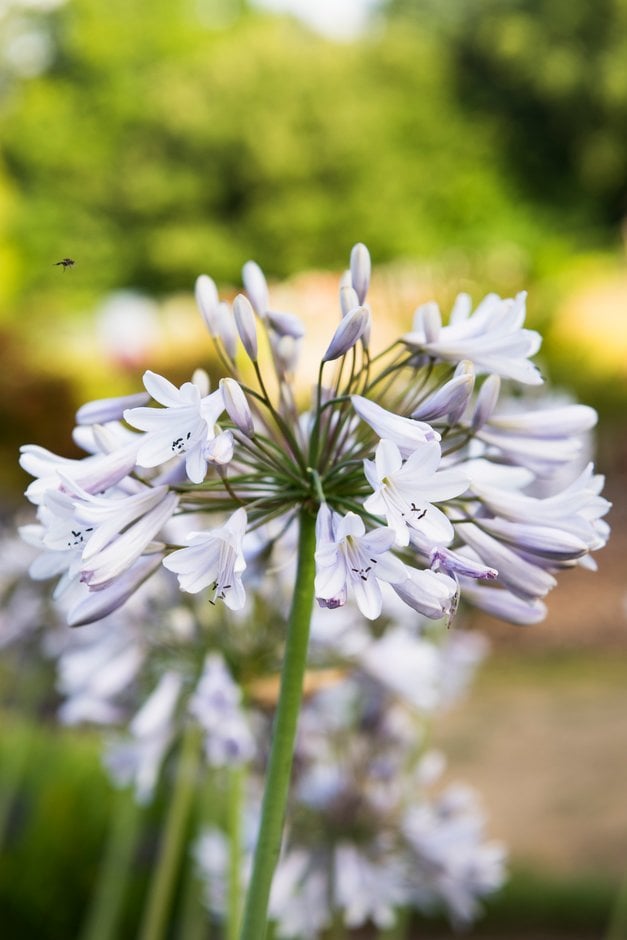Agapanthus 'Stockholm'
African lily 'Stockholm'
A herbaceous perennial up to 1.3m high with deciduous, upright, dark green leaves, 20-50cm long, and round flowerheads 15-22 cm across of about 50-80 horizontal flowers, each up to about 4cm long, pale violet-blue with darker midribs, from midsummer to late summer

Buy this plant
Size
Ultimate height
1–1.5 metresTime to ultimate height
2–5 yearsUltimate spread
0.5–1 metresGrowing conditions
Moisture
Moist but well–drainedpH
Acid, Alkaline, NeutralColour & scent
| Stem | Flower | Foliage | Fruit | |
| Spring | Green | |||
|---|---|---|---|---|
| Summer | Blue | Green | ||
| Autumn | Green | |||
| Winter |
Position
- Full sun
Aspect
South–facing or West–facing
Exposure
Sheltered Hardiness
H5Botanical details
- Family
- Amaryllidaceae
- Native to GB / Ireland
- No
- Foliage
- Deciduous
- Habit
- Clump forming
- Potentially harmful
- Humans/Pets (dogs, cats): harmful if eaten. Wear gloves and other protective equipment when handling. For further information and contact numbers regarding pets, see the HTA guide to potentially harmful plants
- Genus
Agapanthus are clump-forming perennials with narrowly strap-shaped leaves, evergreen in some species, and erect stems bearing umbels of funnel-shaped blue or white flowers
- Name status
Accepted
How to grow
Cultivation
Grow in moisture-retentive but well-drained soil in full sun, and in colder areas provide winter protection with a loose mulch; in containers, grow in peat-free, loam-based compost, water freely when in growth but sparingly in winter, and apply a balanced liquid fertilizer monthly from spring until flowering; for more advice, see Agapanthus cultivation
Propagation
Propagate by division in spring
Suggested planting locations and garden types
- Cottage and informal garden
- City and courtyard gardens
- Coastal
- Patio and container plants
- Mediterranean climate plants
- Cut flowers
- Flower borders and beds
- Wall side borders
Pruning
No pruning required: allow flowering stems to remain, because the seedheads look attractive over winter
Pests
May be susceptible to slugs and snails and agapanthus gall midge but generally pest-free
Diseases
May be susceptible to a virus
Get involved
The Royal Horticultural Society is the UK’s leading gardening charity. We aim to enrich everyone’s life through plants, and make the UK a greener and more beautiful place.